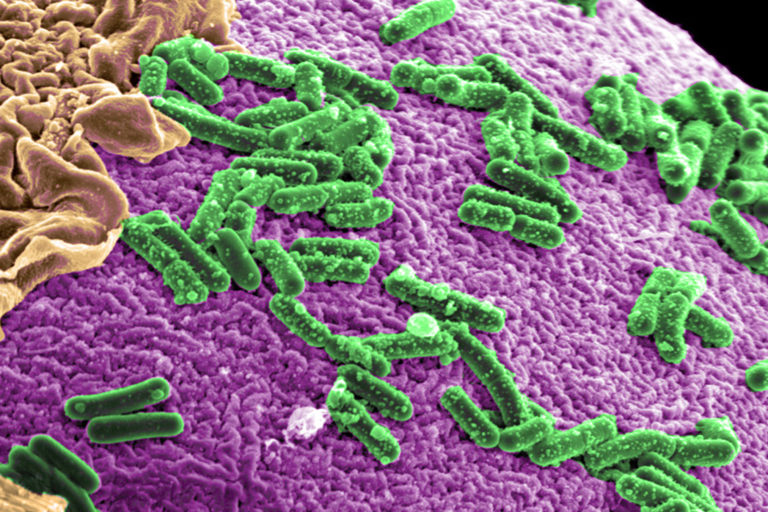New research has linked prenatal exposure to deforestation in Cambodia to child stunting and anemia among women. This link between human well-being and forest loss illustrates how the latter can…
If there’s one field of research that speaks to humanity’s relationship with the natural world, it’s the interface between wildlife and health. Human alteration of the planet through deforestation, climate…
Dr. Sakib Burza says his fondest memories are climbing the majestic pine trees in the Kashmir Valley where he spent most of his childhood with his family. On a normal…
From September to November 2023 Manaus, a city located in the relatively intact forest area in the central part of Brazilian Amazonia, was surprised to find itself under a dense…
The world’s two worst nuclear accidents, in Ukraine and Japan, along with the human exclusion zones around them, are informing scientists about radiation effects, and how ecosystems evolve with less pressure from people.
The researchers estimate that 123 childhood deaths during the 2008-19 period are associated with exposure to pesticides from the soy fields, amounting to half the deaths of children under 10 from lymphoblastic leukemia in the region.
Indonesia’s oldest women’s Islamic organization will prepare volunteers in Kalimantan and Sumatra to open clean air sanctuaries, should a strengthening El Niño accelerate wildfires over the coming months. “We will…
KATHMANDU– Every monsoon season (June–August), Nepal’s Chitwan National Park becomes a no-go zone for tourists and locals alike. The park, home to the vulnerable one-horned rhinoceros (Rhinoceros unicornis), is flooded…
Last year, a car fueled by human waste toured the European countryside, covering more than 2,000 kilometers (1,200 miles). It was the culmination of To-Syn-Fuel, a pathfinding project using technology…
SÃO PAULO—A new study published in Nature estimates that forests in Indigenous lands in Brazil’s Amazon have the potential to absorb over 7,000 tons of noxious fumes from forest fires…
SÃO PAULO — Since the new Brazilian government under President Luiz Inácio Lula da Silva took office on Jan. 1, its ministries have been working together to overcome a humanitarian…
Pollution from a variety of sources is driving up the incidence of resistance to the compounds used to treat infections, according to a report released by the United Nations Environment…
Insect pollinator loss is already resulting in an estimated half million early deaths yearly due to reduced healthy food availability and higher prices. Researchers say action to overhaul global agriculture is urgently needed.
Brazil’s use of pesticides has spiked in recent years, growing by over 300,000 tonnes since 2010, according to experts. A recent report, published by the NGO Operação Amazônia Nativa (OPAN)…
Among the ambitious commitments made at COP27 were plans for a methane monitoring satellite system that would improve tracking in the energy sector where the majority of global greenhouse gas…
KATHMANDU — Hindus in Nepal marked Tihar this past week, the festival of lights that takes place at the same time as the better-known holy day of Deepavali. But for…
A Mongabay investigation into palm oil contamination in the Brazilian Amazon has helped federal prosecutors to obtain a court decision this week to scrutinize the environmental impacts of pesticides used…
Plastic has been found in the most unexpected places: in the deepest parts of the ocean, in the remote mountain air, in human blood. And now, it’s even been found…
Human transgressions of the biodiversity, land-use, pollution and climate planetary boundaries are altering gut microbiomes across species, impacting human health and ecosystems. But there’s hope.
During the pandemic, as researchers looked to wet markets and the animal trade in search of the source of COVID-19, there was a renewed concern for how the natural world…
Years of artisanal mining along the Madre de Dios River and its tributaries have left their marks, both seen and unseen. Miners, swarming to the region in a modern-day goldrush,…
Caffeine isn’t only the most consumed psychostimulant in the world, it’s also one of the most ubiquitous of pollutants in the world’s rivers, says a new global study of pharmaceutical waste. It’s also impacting marine ecosystems, says another new study.
Modeling shows microplastics can be trapped in river sediments for up to 7 years posing unknown and unstudied risks to biodiversity and human health.
Humanity’s response to pandemics to date is similar to our climate change response: mitigation rather than prevention. A new study says preemption could save trillions of dollars and millions of lives; but preparation is grossly underfunded.
A February U.N. meeting will address the urgent need for a treaty to control plastics pollution, but whether the forthcoming draft agreement will regulate global plastics supply chains from cradle to grave, or be limited to protecting oceans, is unknown.
7.8 billion people produce a lot of waste, but governments, entrepreneurs and NGOs are developing a host of technologies that work with nature to transform a dirty problem into a suite of elegant sustainable solutions.
It doesn’t get talked about much, but 7.8 billion humans make a lot of waste, and a lot of it is flowing into the planet’s rivers, estuaries and oceans, with major impacts on clean water, biodiversity and public health.
KAMPALA, Uganda — Tour guide Patrick Kataama relied heavily on income from leading gorilla-trekking tours in Uganda's national parks. These tours were abruptly shut down in late March 2020, after…
Years before the obsession with wild-borne pathogens latching onto humans gripped the world, Gladys Kalema-Zikusoka was already dealing with disease spillovers. Except, she worried about humans infecting gorillas in her…
A new study published in Lancet Planetary Health reports how localized deforestation and global warming are contributing to an increase in heat-related deaths in Berau, a district in Indonesia’s East…


































































